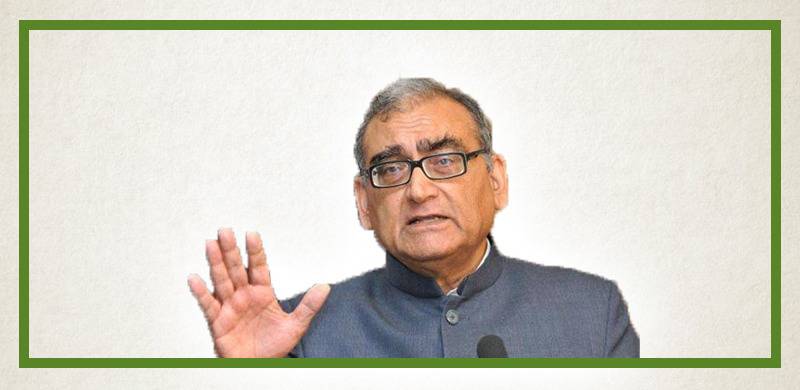
Justice Markandey Katju writes about the Indian government representatives' indifference over the onion crisis in the country. Onions are important for the Indian masses because the poor subsist by eating roti with some salt and a few onions, as they can afford little else.
The majority of India’s 1.35 billion people are very poor. And many of such poor people subsist by eating roti with some salt and a few onions, as they can afford little else. Onions are therefore as important for the Indian masses today, as bread was for the French masses at the time of the French Revolution of 1789.
In India, of late, onion prices have gone up the roof, up to Rs 100 per kilo in most areas, which is an escalation by 4o times the price 3 months back. In Howrah and Hyderabad, it is reported to be up to Rs 120-130 per kilo or even more, and this is despite the ban on export of onions and huge imports.
When questioned about it, the Union Finance Minister, Nirmala Sitharaman, said that her family members do not eat onions, and Union Health and Family Welfare Minister Ashwini Chaube, said he had never eaten onions in his life, so how could he comment on the situation.
The remarks of these Ministers were cruel and flippant, and displayed utter lack of sensitivity to the sufferings of the masses. The issue was not the personal eating habits of these Ministers. It was the question that what was being done to alleviate the distress of the people.
Indeed what would the people of Paris and other parts of France have thought if the Bourbons and the other French aristocrats had said, when told of the bread shortage in the cities, what had they to do with bread when what they eat are exotic delicacies like caviar, lobsters, cow’s tongues and goat’s brains, washed down with the finest French wines? It would be as cruel as Queen Marie Antoinette, who when told that the people do not have bread, said that they could eat cake.
Insensitive remarks can later have terrible consequences, as Foulon, the French Controller of France (similar to the Indian Finance Minister) under Louis 16th learnt. When told that the people do not have bread, he is said to have remarked “Let them eat grass.”
After the storming of the Bastille on 14th July, 1789 Foulon tried to hide, was caught, his head cut off, the mouth stuffed with grass, and the head stuck on a pike and paraded on the streets of Paris with a poster stating, “Here is the man who wanted us to eat grass “.
In these days of terrible people’s distress in India, politicians should have be careful and watch their words, lest the people’s mounting anger not make them do something similar to what was done to Foulon.
The majority of India’s 1.35 billion people are very poor. And many of such poor people subsist by eating roti with some salt and a few onions, as they can afford little else. Onions are therefore as important for the Indian masses today, as bread was for the French masses at the time of the French Revolution of 1789.
In India, of late, onion prices have gone up the roof, up to Rs 100 per kilo in most areas, which is an escalation by 4o times the price 3 months back. In Howrah and Hyderabad, it is reported to be up to Rs 120-130 per kilo or even more, and this is despite the ban on export of onions and huge imports.
When questioned about it, the Union Finance Minister, Nirmala Sitharaman, said that her family members do not eat onions, and Union Health and Family Welfare Minister Ashwini Chaube, said he had never eaten onions in his life, so how could he comment on the situation.
The remarks of these Ministers were cruel and flippant, and displayed utter lack of sensitivity to the sufferings of the masses. The issue was not the personal eating habits of these Ministers. It was the question that what was being done to alleviate the distress of the people.
Indeed what would the people of Paris and other parts of France have thought if the Bourbons and the other French aristocrats had said, when told of the bread shortage in the cities, what had they to do with bread when what they eat are exotic delicacies like caviar, lobsters, cow’s tongues and goat’s brains, washed down with the finest French wines? It would be as cruel as Queen Marie Antoinette, who when told that the people do not have bread, said that they could eat cake.
Insensitive remarks can later have terrible consequences, as Foulon, the French Controller of France (similar to the Indian Finance Minister) under Louis 16th learnt. When told that the people do not have bread, he is said to have remarked “Let them eat grass.”
After the storming of the Bastille on 14th July, 1789 Foulon tried to hide, was caught, his head cut off, the mouth stuffed with grass, and the head stuck on a pike and paraded on the streets of Paris with a poster stating, “Here is the man who wanted us to eat grass “.
In these days of terrible people’s distress in India, politicians should have be careful and watch their words, lest the people’s mounting anger not make them do something similar to what was done to Foulon.
